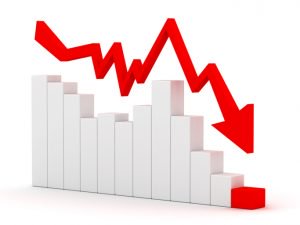
You’ve got to be a special kind of law enforcement officer to have two lawsuits filed against you in the same day. Hamilton County Deputy Daniel Wilkey is that kind of special. The Tennessee law enforcement officer managed to violate rights against enough people that two of them retained lawyers. This suggests Deputy Wilkey violates rights on a regular basis, but maybe not egregiously enough to merit a lawsuit in every case.
Both cases here are disturbing. And they’re disturbing in very different ways. I’ve never read a civil rights lawsuit against an officer that included claims of a forcible religious experience, but here we are. (h/t Peter Bonilla)
The first lawsuit [PDF], filed by Shandle Riley, alleges that Deputy Wilkey followed her to a friend’s house from a nearby gas station. Once he had (sort of) pulled her over, things got weird quick.
First, Deputy Wilkey claimed Riley was holding meth. To prove this, he engaged in a full body patdown. Then he ordered her to take off her bra and “shake her bra and shirt” to prove she hadn’t stashed any meth there. Riley asked for a female officer to be present during this “search” but the deputy told her the law doesn’t require female cops to search female citizens.
He then asked if she had anything illegal in her car. She said she had a marijuana roach stashed in a pack of cigarettes. At that point, Deputy Wilkey became verbally abusive. Then he decided to strike a deal with the alleged criminal. We’ll go to the lawsuit for that because… well, it offers the driest recounting of a positively insane situation.
Wilkey then approached Plaintiff and asked her if she was “saved” and believed in Jesus Christ.
Plaintiff stated that she believed in Jesus Christ, but that she was not “saved” by her own choice.
Wilkey then told Plaintiff that God was talking to him during the vehicle search, and Wilkey felt the Lord wanted him to baptize the Plaintiff.
Wilkey further told Plaintiff that he felt “the spirit.”
Um. Do what now?
These are words coming from the mouth of a sworn peace officer. And that’s not the end of it. The option given to Riley was to participate in this highly-unconventional baptism presided over by an officer of the law or get thrown into the gaping maw of the criminal justice system with as much force as Deputy Wilkey could muster. If Riley agreed to a baptism, Wilkey said he would only cite her for marijuana possession and speak to the judge on her behalf. Riley complied with Wilkey’s demands, which included grabbing towels from her friends house and following Wilkey’s cruiser out to a nearby lake.
At the lake, Riley and Wilkey were joined by Deputy Jacob Goforth, who did nothing as Wilkey proceeded with the “baptism.”
Wilkey told Plaintiff that Goforth was present because, in order for a baptism to be valid, a witness must “attest” to the ritual.
Wilkey then stripped nearly naked, with only his boxer shorts on.
Wilkey then gave Plaintiff the option to strip too, but Plaintiff declined.
Wilkey then lead Plaintiff into the near waist deep and frigid water, placed one hand on Plaintiff’s back, and his other hand on Plaintiff’s breasts, and completely submerged Plaintiff under the water.
Wilkey held Plaintiff under water for several moments, then with his hands still positioned on her back and breasts, raised Plaintiff from the cold water.
Plaintiff was shivering uncontrollably, and felt horribly violated.
Unfortunately for Riley, I doubt there’s a case on point that will easily eliminate Wilkey’s qualified immunity defense. But hopefully, the court will recognize this is batshit insane enough it doesn’t need to find a case on point to find Wilkey violated her rights. To top it all off, Riley held up her end of the under-the-color-of-law bargain. Deputy Wilkey did not.
At no time did Wilkey ever [go to] court on Plaintiff’s behalf and speak to the judge.
If that was the only thing Wilkey was being sued about, it would be enough to question his fitness for duty. But as you already know, this isn’t the end of the accusations against the deputy.
The second lawsuit, filed in the same court on the same day, alleges Deputy Wilkey engaged in a suspicionless stop that turned into an impromptu roadside anal cavity search and the beating of a handcuffed man. And oh my god does it start with one of the dumbest things an officer has ever said to defend a pretextual stop. From the lawsuit [PDF]:
Wilkey followed Plaintiffs, and conducted a traffic stop of the Plaintiffs on the false claims of “window tint violation” and that he could smell the odor of marijuana as Wilkey followed the plaintiffs.
This assertion of Wilkey’s exceptional olfactory senses is followed by a parade of brutalities inflicted on the passenger of the pulled-over vehicle at the hands of the deputy. Fortunately for the plaintiffs, this whole interaction was recorded.
Here’s the lawsuit’s description of those events:
Wilkey handcuffed James, and the individual Defendants took James to the front of one of their police vehicles.
Wilkey then began to grab James’ genitals. When James told Wilkey that James had an untreated and large hernia and that Wilkey’s actions were causing James pain, Brewer and Wilkey jerked James’ arms high above his back, and slammed James face-down onto the hot engine hood, causing injury to James.
Wilkey and Brewer then beat James with fists, knees, and feet, slammed James to the ground, and continued their brutalization of James.
Wilkey and Brewer then removed James’ pants and shoes, while still beating James.
Wilkey and Brewer then forced James’ face back onto the hot hood of the same police vehicle and continued to jerk his arms high above his back, and beat James.
While Brewer continued to force James’ face back onto the hot hood of the same police vehicle and jerk his arms high above his back Wilkey donned a set of gloves, pulled down James’ underwear, and conducted an anal cavity search of James.
The lawsuit goes on to note that James suffered numerous injuries including “tearing of his anus” and an aggravation of his existing hernia. The charges brought against James (the deputies discovered drugs in his underwear) were all dropped after the dashcam video was made public.
Deputy Wilkey has been suspended, but it’s the nice kind that means he’ll be paid to do nothing while the Sheriff’s Office decides what to do with him. It would seem obvious he’s too expensive to keep around.
Tennessee Deputy Sued Twice In The Same Day Over A Roadside Anal Search And A Forced Baptism
More Law-Related Stories From Techdirt:
States Rush To Protect Net Neutrality On Heels Of Court Ruling
Marc Benioff Calls For Section 230 To Be Abolished At The Same Time His Company Is Relying On 230 To Get Out Of A Lawsuit
The Ultimate Aim Of China’s 2016 Cybersecurity Law Is Now Clear: Nothing Digital Can Be Secret From The Authorities




















 Tom Kulik is an Intellectual Property & Information Technology Partner at the Dallas-based law firm of
Tom Kulik is an Intellectual Property & Information Technology Partner at the Dallas-based law firm of 







